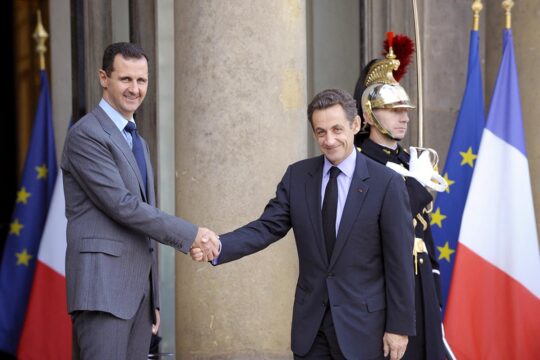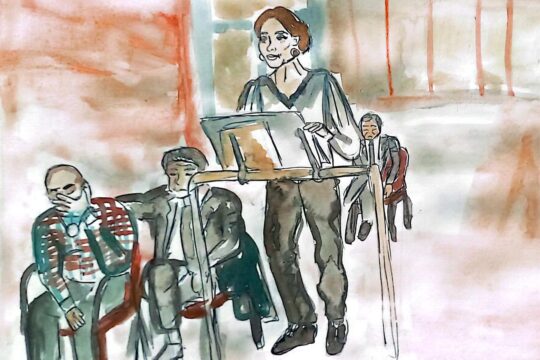Two former Rwandan mayors went on trial in Paris on Tuesday, accused of orchestrating "massive and systematic summary executions" during the central African country's 1994 genocide.
Octavien Ngenzi, 58, and Tito Barahira, 64, are alleged to have played a direct role in the massacre of hundreds of minority Tutsis who had taken refuge in a church in the eastern town of Kabarondo on April 13, 1994.
It is the second trial for crimes against humanity and genocide by a special Paris court set up to go after suspected Rwandan killers who fled to France.
Memories of the genocide, in which at least 800,000 people died over 100 days of slaughter, continue to strain relations between the two countries.
Rwanda accuses France of complicity -- and even direct involvement -- in the violence because of its support for the Hutu nationalist government at the time.
Ngenzi and Barahira deny the charges against them, which include a "concerted plan aimed at the annihilation" of the Tutsi minority.
They appeared calm and attentive as the trial opened and waived their right to remain silent.
They were sentenced in absentia to life imprisonment by Rwandan people's courts, known as gacaca, in 2009.
Both were mayors of Kabarondo, Ngenzi having succeeded Barahira in 1986.
Witnesses have said that on the morning of April 13, they saw Barahira wielding a spear at a rally at a football field where he called for "work" -- code for killing Tutsis.
Soon afterwards, hundreds of refugees who had arrived in recent days were hacked or beaten to death or blown up with hand grenades, according to survivors.
The killings in Kabarondo, a town near the border with Tanzania, took place with great speed.
The bloodshed was over by the end of April, when Tutsi rebels in the armed wing of what is now the ruling Rwandan Patriotic Front (FPR) took control of the area.
Elsewhere in the former Belgian colony, the slaughter continued until the FPR fighters finally prevailed in July.
The mayors' trial, which is set to last eight weeks, will be adjourned on Monday and Wednesday afternoons so that Barahira, who suffers from kidney failure, can undergo dialysis.
It comes two years after Pascal Simbikangwa, a former Rwandan army captain, was tried in Paris and jailed for 25 years for his role in the genocide.
His lawyers have denounced that verdict as "political" and are appealing it.
- Diplomatic freeze -
The Rwandan government has welcomed prosecutions when they target Hutus, but has reacted angrily to other efforts by the French authorities.
Kigali broke off ties with Paris in 2006 after a French judge issued arrest warrants against nine Rwandan officials over the assassination of Hutu president Juvenal Habyarimana.
The shooting down of the presidential plane on April 6, 1994, was blamed on the Tutsis and is considered to be the event that sparked the genocide.
The diplomatic freeze lasted for three years.
Marking the 20th anniversary of the mass killings in 2014, Rwanda's Tutsi president, Paul Kagame, accused French soldiers not only of complicity in the genocide, but of actually taking part.
Last year, charges were thrown out against a priest, Wenceslas Munyeshyaka, the first Rwandan to be prosecuted in France in what had also been viewed by his defence lawyers as a politically motivated case.





